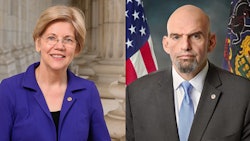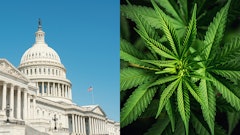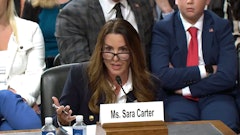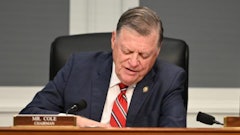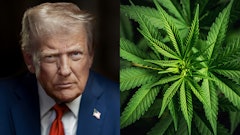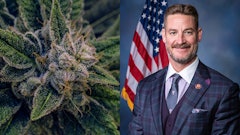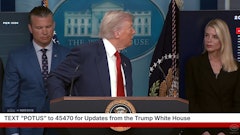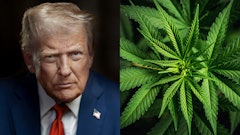
Updated 8:15 a.m.. May 1, 2024.
The Drug Enforcement Administration (DEA) is moving to reclassify cannabis as a Schedule III drug under the Controlled Substances Act (CSA) in a historic decision with wide-ranging and still unclear implications.
"Today, the Attorney General circulated a proposal to reclassify marijuana from Schedule I to Schedule III," U.S. Department of Justice (DOJ) Director of Public Affairs Xochitl Hinojosa said in a statement sent to Cannabis Business Times on April 30. "Once published by the Federal Register, it will initiate a formal rulemaking process as prescribed by Congress in the Controlled Substances Act.”
The DEA's move, first reported by the Associated Press (AP), comes eight months after the U.S. Department of Health and Human Services (HHS) announced its recommendation to reschedule the plant, “following the data and science” and in response to President Joe Biden’s directive in October 2022 that the HHS and DEA should review how cannabis is scheduled under federal law.
DEA's proposal "must be reviewed by the White House Office of Management and Budget," the AP reported.
RELATED: Cannabis Rescheduling Reactions Mixed: While Some Applaud Potential, Others Push For More
It’s faster than many predicted, as past examinations have taken multiple years. The most recent study of cannabis’s Schedule I status, which ended with a DEA rejection in 2016, took five years. The plant stayed in Schedule I, and the state and federal legalization dichotomy remained status quo.
But many hoped the outcome this time would be different, as the directive came from a sitting president and rescheduling was recommended by the HHS, a federal agency.
“If today’s reporting proves true, we will be one step closer to ending the failed war on drugs," said Rep. Earl Blumenauer, D-Ore., founder and co-chair of the Congressional Cannabis Caucus and a longtime advocate for federal cannabis reform, in a statement referring to the AP's April 30 report. "Marijuana was scheduled more than 50 years ago based on stigma, not science. The American people have made clear in state after state that cannabis legalization is inevitable. The Biden-Harris Administration is listening.”
Lawmakers also put pressure on the DEA to be transparent about the timing and provide updates of DEA’s review, and, in January, 12 U.S. Senate Democrats called for descheduling cannabis as opposed to rescheduling.
Most recently, 21 U.S. lawmakers sent a letter, spearheaded by Sens. Elizabeth Warren, D-Mass., and John Fetterman, D-Pa., and Reps. Blumenauer and Barbara Lee, D-Calif., April 24 urging the DEA to “make good on the President’s commitments” to reschedule cannabis.
Despite multiple Freedom of Information Act (FOIA) requests from Cannabis Business Times and others, and a lawsuit, it took the HHS nearly five months to confirm it had recommended that cannabis move to Schedule III. (Bloomberg was the only news organization to report it had seen but did not have a letter from HHS to DEA announcing the Schedule III reclassification.) On Jan. 12, in response to FOIA lawsuit filed by Matthew Zorn, partner at Yetter Coleman, HHS released 252 pages of documents detailing the Food and Drug Administration's rationale for suggesting a lower schedule on the CSA.
In the report, the federal government agency wrote: “After assessing all available preclinical, clinical, and epidemiological data, FDA recommends that marijuana be rescheduled from Schedule I into Schedule III of the CSA. Schedule III drugs are classified as having a potential for abuse less than the drugs or other substances in schedules I and II, a currently accepted medical use in treatment in the United States, and moderate or low physical dependence or high psychological dependence that may result from their use. NIDA [National Institute on Drug Abuse] concurs with this recommendation."
In addition to recognizing cannabis's medical benefits for specific conditions, officials cited evidence as to why they believe cannabis does not pose a significant risk to public health, and compared it to other drugs listed on the CSA, including heroin (Schedule I), fentanyl (Schedule II), oxycodone (Schedule II), hydrocodone (Schedule II), cocaine (Schedule II), ketamine (Schedule III), and benzodiazepines (Schedule IV).
For more than 50 years, cannabis has been classified as a Schedule I drug, meaning, in the eyes of the federal government, it has been illegal, dangerous and as addictive as substances like heroin, with “no accepted medical use,” despite the fact that dozens of states have legalized cannabis for medicinal purposes and implemented a framework for regulating, testing and selling cannabis. The DEA’s reclassification comes after nearly half of U.S. states have legalized cannabis for adults 21 and older, with Colorado’s pioneering market launching a decade ago and Ohio’s citizens most recently ushering in adult-use legalization in November.
In the weeks after the HHS decision, many advocated for rescheduling, including six Democratic governors, who sent President Biden a letter Dec. 5, 2023, urging him to see that the DEA rescheduled cannabis before the end of 2023. Sen. Kirsten Gillibrand also called on the DEA to reclassify cannabis as Schedule III.
Other lawmakers voiced their opposition to rescheduling, including U.S. Rep. Andy Harris, R-Md., who sent a letter to DEA administrator Anne Milgram Jan. 31. Earlier in December, a group of about a dozen former attorney generals cautioned the DEA against rescheduling. According to an article published on CBT, “The letter warns that since former DEA Administrator Chuck Rosenberg determined in 2016 that cannabis should remain a Schedule I drug under the Controlled Substances Act (CSA), ‘marijuana has only become more dangerous, potent and addictive.’”
As a Schedule III substance, the DEA’s designation means that cannabis will fall alongside drugs like ketamine or acetaminophen products containing codeine, which are generally prescribed and sold through licensed pharmacies and not available over the counter. Importantly, the move would mean cannabis has medicinal value, but like other Schedule III drugs, there could be many limitations and regulations dictating use and possession.
No matter where it landed on the list, Paul Armentano of NORML had told CBT in October 2022 that rescheduling would be a “disaster.”
“The reason the federal government ought to take action on this issue is because right now, the majority of state marijuana laws are inconsistent with federal law,” Armentano said in October 2022. “If marijuana were to be removed from Schedule I and placed in some other schedule in the Controlled Substances Act, the majority of states right now that are out of compliance with federal law would be just as out of compliance with federal law going forward.”
That was a concern state-legal cannabis operators and other industry advocates raised when the HHS confirmed it recommended rescheduling cannabis in August. If Schedule III is followed to the letter, the regulated markets as they exist would be upended under a Schedule III regime, as substances generally require FDA approval, prescriptions, and may no longer be able to be sold through dispensaries already established across the country.
“Regulatory agencies involved in this process over the years have defined medical use in the United States very narrowly. That means the drug is approved by the U.S. Food and Drug Administration for a particular purpose,” Armentano said in October 2022. “I don't think it is likely that there's going to be an exception made for cannabis, that cannabis is going to be placed in a lower schedule absent FDA approval.”
But others disagree. Depending on the next steps, rescheduling could mean more access to capital and banking, pathways to research, bankruptcy protection and less burdensome taxes, especially IRS Code Section 280E, which prevents many licensed cannabis operators from taking normal business deductions afforded to other companies. 280E only applies to businesses producing and selling Schedule I and II substances, so rescheduling means 280E no longer applies to cannabis businesses. Some believe the federal government would allow already established state-legal markets to continue.
Lawsuits could also delay and potentially overturn rescheduling, something that Shane Pennington, partner at Porter Wright Morris & Arthur, told CBT in September was a concern for him.
“So you end up with a final rule, you get through the whole process, and [the DEA] comes out with a very important rule. And then you have some saying the porridge is too hot and then you have others screaming that the porridge is too cold. We'll have some who say this is outrageous, it should be on Schedule I. And then you'll have others who say this is outrageous, it shouldn't be on any schedule,” Pennington told CBT in September 2023 after the HHS announced it was recommending rescheduling. “For this historic victory to sustain and to be meaningful, it's going to have to survive judicial review and make its way through the courts. Those are the things that I'm thinking about now very much.”
Administratively, rescheduling generally takes time, Pennington told CBT in January. After the proposed rule from the DEA, the agency will begin a 60-day public participation period and allow "interested parties to request hearings on the record," he says.
Then, Pennington says, the DEA will write its final rule, which must be published in the federal register for 30 days before it becomes effective.
“There are some exceptions to that, but the DEA generally requires a 30-day delay between the time it’s published and the time it becomes effective,” he says.
Kris Krane, CEO of strategic consultancy Kranewreck Enterprises and director of cannabis development for KCSA Strategic Communications, said in October 2022 that yet another hypothetical situation that could arise under Schedule III, which allows pharmaceutical companies to patent cannabinoid-based medicines, is that state markets would be left to operate as they are.
“A move to Schedule II or III could be really problematic. But that also all depends. It could be nothing,” Krane told CBT. “So much depends on what the federal government does in terms of implementation and enforcement. It's fully federally illegal. Everything that every one of these companies is doing is a complete and total violation of federal law, and yet the federal government's just allowing it to continue on at the state level.”
The story of Epidiolex, an FDA-approved medication for treating seizures that contains cannabis compound cannabidiol (CBD), is an example of just how convoluted this process can be, Pennington told CBT in October 2022.
"The DEA can put a substance in a particular schedule—like Schedule IV or Schedule V—and then impose additional restrictions on that substance in particular through separate regulations. It did precisely that with Epidiolex,” Pennington says. “When [the] FDA approved Epidiolex, DEA moved [Epidiolex] from Schedule I to Schedule V, but because Epidiolex qualified as ‘cannabis’ … DEA promulgated special regulations at the same time to impose quota and import-export requirements …. Those special quota and import requirements didn’t apply to any other Schedule V substances at the time (or now).
“When Congress passed the 2018 Farm Bill, DEA decided to remove [Epidiolex] from the schedules entirely (presumably because Epidiolex qualifies as ‘hemp,’ which is no longer a controlled substance in the wake of the 2018 Farm Bill).”
While many saw rescheduling as a step in the right direction, most in the industry agree that descheduling and regulating cannabis like alcohol or tobacco would be a better outcome for operators.
Cannabis advocates from the Drug Policy Alliance and other organizations and businesses organized a press briefing Feb. 28 to explain why rescheduling cannabis falls short of Biden’s promises for reform and how it would continue to harm those most impacted by the criminalization of the plant.
Blumenauer, who in October announced he would not seek reelection in 2024, called the Schedule I classification “grotesquely inappropriate” in an interview with CBT in October 2022 and believes with Biden’s announcement, there will be “beneficial long-term consequences that may start to take effect sooner than you think.”
“If we were doing this again, cannabis wouldn’t be listed at all. What would be a Schedule I controlled substance would be tobacco, which is highly addictive, has no medicinal value and is dangerous,” Blumenauer says. “When you do it fairly, thoughtfully and scientifically, there’s just one conclusion, and that is to legalize, regulate and tax. And I think that’s where we’re going to end up.”
Cannabis Business Times former Senior Digital Editor Melissa Schiller contributed to this report.











